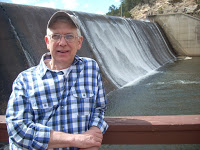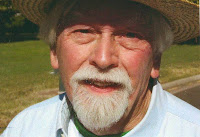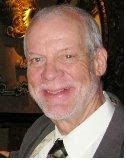A caveat should not precede an essay,
but I should like the gentle reader to know my memory is not only fragile but
also forgetful. Too these events too
between fifty and sixty years ago.
During that length of time a man could easily be conceived, born, reach
adulthood, marry, become a father and even a grandfather. Also you are dealing a fairly normal and
average human being not the third law of thermodynamics which always acts as
expected.
My first adventure unfolded when I
was not even a practicing much less an adept homosexual. I had gotten out of the Air Force and went
down to the University of Alabama in Tuscaloosa to see my long time friend Van
who was working on his Master’s in history.
At that time Tuscaloosa had not been wet very long. True the city had never been dry more like
very damp what with the Northport Fruit Stand being open to all hours and quite
willing to supply a list of potables.
Nothing too fancy. I didn’t know
anybody who drank Scotch, never heard of tequila, couldn’t afford Piper Heidsieck. My needs had also been
supplied by rum runs to Birmingham.
There were few bars in Tuscaloosa,
but Van knew one out on the outskirts. I
remember little about the place because it had little to remember. We sat a table, drank beer, reminisced, told
unshared experiences. The clientele was
college students being college students.
Talking sincerely the problems of the world. Proving that all their profs were
dullards. Showing off their knowledge of
German, French, or Spanish/ No Russian or Chinese in those distant days. Of course every one who disagreed with them
was an idiot. I know this because I’ve
heard college students talk since then.
The tables were small about 18 inches across with just enough room to
hold an ashtray and several beer bottles.
The circumstances meant that you could easily hear or partake in your
neighbors’ conversation.
Having not seen each other for two
years, Van and I had much to discuss, so we ignored our neighbors. Somehow or another two unknown men younger
than we started talking with us. One
look at the two told me that they were probably from the football team. Why they wanted to talk with us was beyond me
because we had such dissimilar interests.
In fact, I wondered why ever did he want to talk to me.
He didn’t. Van saw some people he knew and went over to
their table leaving me alone with the two football players. This was to be my one and only conversation
with football players. Somewhere in that
night, I learned their sport and that one was the quarterback. Hereinafter, he’ll be known as the QB. Also, he was a mediocre QB at least by
Alabama’s standards. They were much
weightier than I, who was about the same size then as now which meant that I
was heavily outmatched by one much less two.
Of course, I can chatter away like crazy to anybody; whether they can
understand me is another matter.
Finally, the QB said he wanted to
have sex with me. I did not answer with
shouts of “What kind of man do you think I am?”
It wasn’t necessary; I knew exactly what sort of man he thought I was. Of course, I demurred to no avail. Without my acquiesce, he said he’d knock me
to the floor and tell everybody that I’d propositioned him. Had the case gone to court, the QB could have
pled rage induced by a homosexual. Fifty
years ago, it probably would have stood up in court especially when used by the
quarter back of the Crimson Tide.
Pleadings did no good; possibly he enjoyed them.
He said to go to the men’s room and
followed me across the floor outside. I
cannot remember why, but you had to go outside to reach the comfort station. The QB had locked the door but had yet to unzip.
Before anything could happen, Van came
running out. He yelled through the door
that he had to leave immediately. The
quarterback said to tell him to go away, I did, Van said he couldn’t leave me
out there in the middle of nowhere and started beating on the door and
yelling. I was freed. Van and I ran to the car, sped off with
squealing tires, and returned to his place by a tortuous route.
My next experience took place years
[later] in Denver out at Vivian’s Den out at 17th and Federal. Although it fronted onto Federal, nobody
entered that way, we all came through the back door from the parking lot. Just inside the door was a level about twenty-five
feet long with a jagged bar to the right.
Beyond that was a step down to the area that contained a pool
table. Next was a step up which led to
the front door with the two rest rooms on either side.
One night, probably a Tuesday because
only four or five of us were sitting at the bar with Leo as bartender. He was the best gay bartender I’ve ever known:
very outgoing, always talking with the customers, knew when your drink needed
replenishing, never ignoring the paying customers while chatting up a possible
trick. We were sitting strung out along
the bar talking about all sorts of things about the way we do at the Tuesday
concave. Four young men entered the bar,
bought drinks, and went to playing pool.
Never have seen the quartet before, I ignored them. Besides I was enjoying the conversation.
Eventually I had to go. I went to the pool area where I waited for
the shooter to shoot and for his ball to stop rolling as good manners
dictated. Then with no acknowledgment of
the players, I went to the restroom and without locking the door, probably
didn’t even close it. There I stood with
the seat down and me unzipped and doing my business before the commode. Suddenly somebody came into the room. Without stopping I turned to see one of the
pool players. He immediately said either
“You God damned queer!” or “You fucking Queer!” but he certainly used the noun
queer. All this time he was pounding on
my face with his fists. Meanwhile I got
through the door unzipped, wetting myself, bleeding from what was a split lip
and what would be a blackened eye, pass the other three pool players to the
safety of my own kind. Leo made motions
of calling the police but didn’t.
The young people today might wonder
why we like Socrates stoically accepted our fate. That was another time, another clime. That was the way life was for Gays. Knowing this, we made adjustments to our
lives knowing that we never called the police, knowing that if our names were
in a newspaper article our jobs were forfeit, knowing that we could be kicked
out of the military in a full-dress parade.
Our leases could be abrogated for our felonious conduct. Picking up a man could result in jail
time. But being young was very heaven
and salved our souls.
© 31 Oct
2010
About the Author
Although
I have done other things, my fame now rests upon the durability of my
partnership with Carl Shepherd; we have been together for forty-two years and
nine months as of today, August 18th, 2012.
Although
I was born in Macon, Georgia in 1928, I was raised in Birmingham during the
Great Depression. No doubt I still carry
invisible scars caused by that era. No
matter we survived. I am talking about
my sister, brother, and I. There are two
things that set me apart from people.
From about the third-grade I was a voracious reader of books on almost
any subject. Had I concentrated, I would
have been an authority by now; but I didn’t with no regrets.
After
the University of Alabama and the Air Force, I came to Denver. Here I met Carl, who picked me up in Mary’s
Bar. Through our early life, we traveled
extensively in the mountain West. Carl
is from Helena, Montana, and is a Blackfoot Indian. Our being from nearly opposite ends of the
country made “going to see the folks” a broadening experience. We went so many times that we finally had
“must see” places on each route like the Quilt Museum in Paducah, Kentucky and
the polo games in Sheridan, Wyoming. Now
those happy travels are only memories.
I was
amongst the first members of the memory writing class. While it doesn’t offer criticism, it does
offer feedback. Also, just trying to
improve your writing helps no end.
Carl
is now in a nursing home; I don’t drive any more. We totter on.










